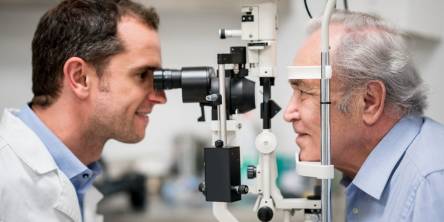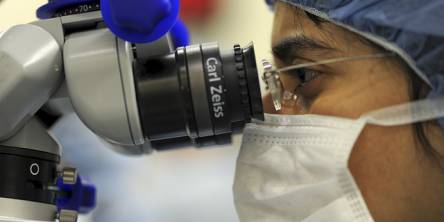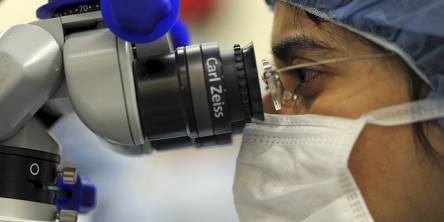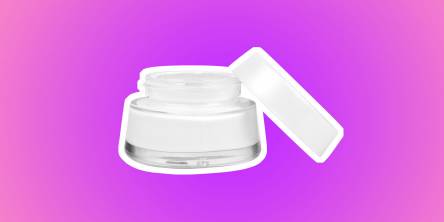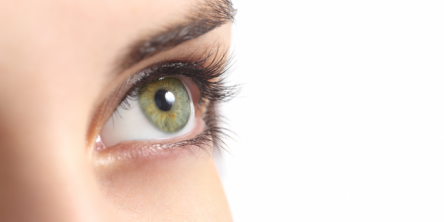7 Signs You Might Need to See an Ophthalmologist
You don't have to wait until you have visual problems to consult with an ophthalmologist. Regular examinations are recommended to detect the earliest signs of eye disease.
You don't want to risk losing your vision in any way. This is why it's important to understand when you should see an eye doctor. Here are a few indicators that you should make an appointment with a specialist:
1. Dry Eyes
Dry eye symptoms can range from slight discomfort to persistent difficulties that interfere with regular activities. For example, you may notice that your eyes are gritty or sticky.
One intriguing symptom to note is that dry eyes can occasionally be accompanied by excessive tears: your eyes will not stop watering. This symptom could indicate poor-quality tears as a result of an imbalance in the delicate tear production mechanism.
Dry eyes are typically an indication of a larger problem, such as pharmaceutical side effects or allergies. If you have persistent dry eyes, you should consult an ophthalmologist to get to the bottom of the problem.
2. Blurry Vision
Many things might cause sudden alterations in vision. If you notice that your vision is changing, you should schedule an eye test to establish the cause.
Also, pay attention to symptoms that cause difficulties in focusing the eyes, especially if the symptoms only affect one eye.
Even if it's as simple as changing your prescription lenses, you mustn't put off seeing an eye care professional. Make an appointment with an ophthalmologist instead to rule out any significant issues and determine why your vision is changing.
3. Vision Disturbances
Sudden changes in your eyesight could be an indication of significant eye problems that require rapid treatment. Obstructions in your vision, flashes of light, black spots, dark shadows, or floaters are all examples. These symptoms may indicate a retinal hole, tear, or detachment, which necessitates immediate medical attention.
If the source of these problems is serious, you should seek medical assistance immediately. Treatment during the first 24 hours may lessen your chances of losing your vision.
4. Light Sensitivity
Do you flinch or close your eyes when you are exposed to light? Light sensitivity is frequently an indicator of inflammation within the eye.
Scarring on the eye can result from some eye conditions that induce light sensitivity. As a result, it is critical to get therapy as soon as possible. On the other hand, some diseases, such as a migraine headache, a virus, or allergies, may be unconnected.
5. Double Vision
Some reasons for double vision can be serious, which is why you should consult an ophthalmologist right away. Double vision, for example, could be an indication of a larger health concern, such as problems with blood arteries in the brain or a stroke.
6. Eye Pain
If your eyes hurt, it could be a sign of something more serious. Serious eye illnesses, for example, that cause eye pain, can result in permanent vision loss in just a few days. So, instead of waiting till the pain goes away, get an eye test as soon as feasible.
Take note of any additional symptoms linked with the discomfort. Vomiting, nausea, and headache are a few examples. Also, keep in mind that little eye strain or pain is usually not cause for alarm. However, it never hurts to see an ophthalmologist to rule out more serious issues.
Eye pain can also be caused by a foreign item in the eye. An eye doctor can assist in removing the object and preventing further injury.
7. Color Change in the White Areas of the Eye
A white color should be visible in the eyes, although this white can change to pink or red. A color change may indicate a more serious issue, such as an infection or allergies.
An eye care specialist may be required if there is a change in the white area of the eye. Unfortunately, your primary care practitioner has little familiarity with potentially serious eye disorders. As a result, the best solution is to schedule a consultation with an ophthalmologist for a diagnosis.
Similar Articles
In today's digital age, we are constantly exposed to screens of various devices such as smartphones, laptops, and tablets. While these technological advancements have greatly improved our lives, they also come with a downside - digital eye strain.
Taking care of your vision and overall eye health is essential for maintaining a good quality of life as you age. Hence, it’s not a good idea to overlook those regular eye exams as they are a crucial aspect of eye care. Read on to explore the most significant reasons for scheduling an appointment with an ophthalmologist, as well as the importance of professional eye care and early detection of potential problems with your vision.
Chandraprabha vati is a standardized herbal formulation mentioned in our ancient texts. This medicine is a mix of various ingredients in a tablet (Vati) form. Chandraprabha vati is a Rasayan (Rejuvenator) and Balaya (Strengthening). It is an analgesic, antispasmodic, anti-hyperglycemic, and a good blood purifier. It is indicated in a number of disorders.
You should see an eye doctor once you turn 40 and then every year going forward. It's critical for them to test your vision because early detection can save significant trouble down the line!
There are millions of patients who every year correct LASIK by losing vision for myopia, farsightedness or astigmatism. LASIK refractive surgery is a cutting-edge technique that uses the excimer laser to correct many of the most common vision defects.
You may suffer a serious eye infection if you do not clean, and disinfect your contact lenses properly.
Living with dark eye circles is not something that we like. But as we age, these appear more prominently under our eyes.
Almost all of the workplaces nowadays are digitalized that demand a lot of computer related works from their employees. However, working for long hours on the computer screen will give rise to a major job-related problem which may need a Computer Eye Strain Treatment.
Eyelid surgery is medically termed as Blepharoplasty. It is a popular solution that targets the lower eyelids, upper eyelids or even both. Eyelid surgery enhances the eyes and rejuvenates the face by eliminating fine lines, under eye bags and drooping eyelids.




